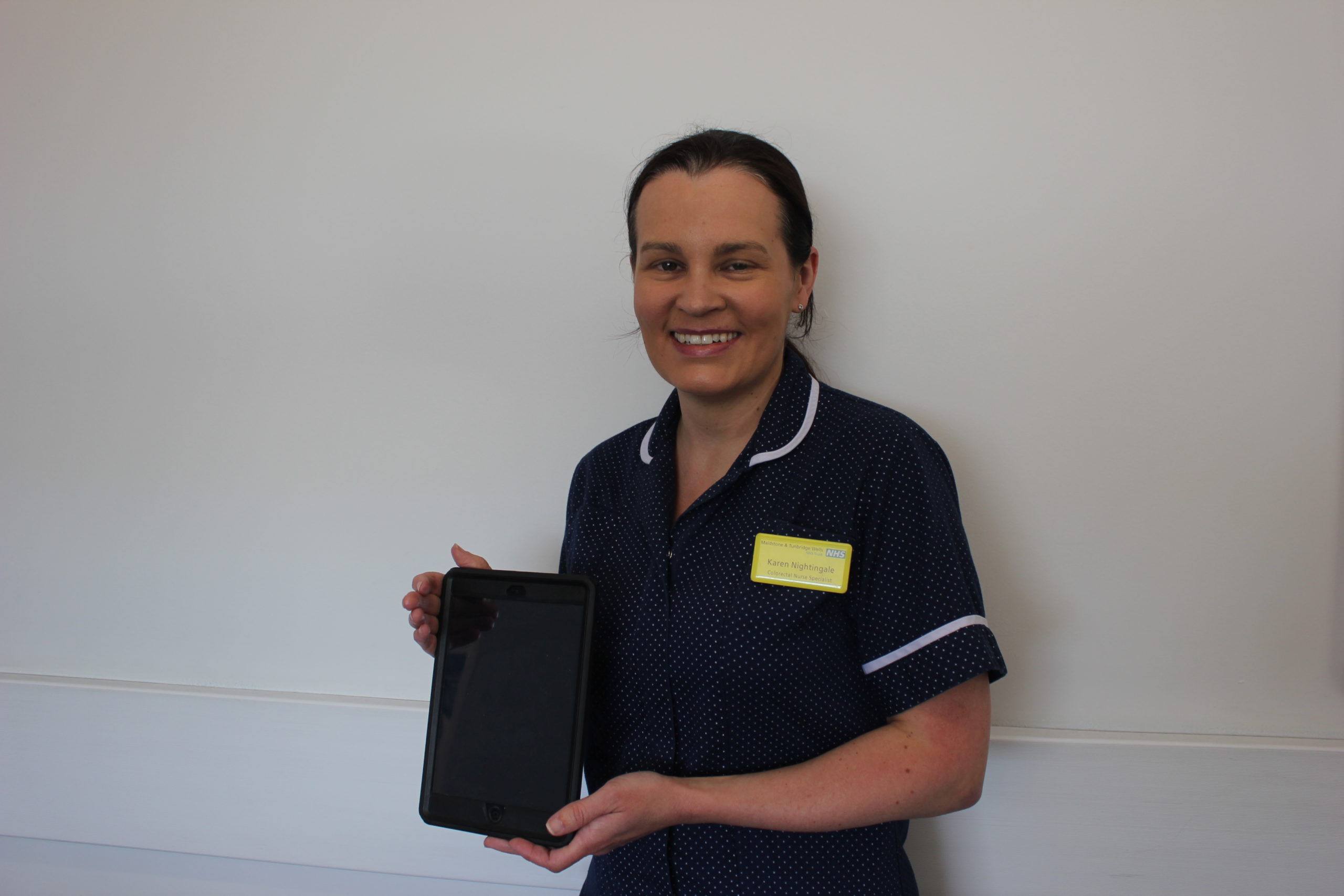
Now more than ever patients who have been admitted to hospital need to be able to stay in contact with their family and friends.
To help them stay connected with their loved ones during the pandemic, Maidstone and Tunbridge Wells NHS Trust has provided 55 iPads to wards at both Maidstone and Tunbridge Wells hospital sites so patients can see and speak to their nearest and dearest via video messaging services, such as FaceTime or Skype.
A total of 42 iPads were introduced initially in April after visiting restrictions were put in place to help protect both patients and staff from the virus. As the weeks have gone on more iPads have been allocated including 10 to the Intensive Treatment Units (ITU) at both hospital sites.
ITU, also known as Intensive Care Unit (ICU), cares for some of the sickest patients, including those on ventilators due to Covid-19. Due to the current visiting restrictions, having the iPads on ITU means staff can also help relatives who sadly need to say their final goodbyes to their loved one before they pass away.
Morfydd Williams, Director of IT Transformation at Maidstone and Tunbridge Wells NHS Trust, said: “Sadly, due to the pandemic and the current visiting restrictions at our hospital sites, the last time many people see their loved ones before they’re admitted to hospital is either when they drop them off or just before they are taken to hospital by ambulance. However, it is important for our patients’ wellbeing and recovery for them to be able to stay in touch with family and friends whilst they are in hospital.
“Thanks to the collective efforts of numerous teams across the Trust involved with this project, issuing iPads to a number of wards means our inpatients can remain in contact with their relatives and friends and we know that is making a real difference to them during these exceptionally difficult circumstances.
“Heart-warming stories shared by staff about how patients have used the iPads include a patient on ITU being able to wish their son a happy birthday from their hospital bed and another patient being able to see his wife, children and dog for the first time in five weeks. Hearing those stories makes what we have achieved in a short space of time so rewarding.”
To contact an inpatient, a relative, carer or friend must call the ward the patient is on and provide two unique identifiers – the person’s name and date of birth. They are then allocated a time-slot to connect to the iPad which has its own unique address. The iPad will be given to the patient at the agreed time so they can receive the call.
The service is safe and secure for patients to use, as Morfydd explains: “Once the call has finished the data is deleted by the member of staff on the ward who is responsible for supporting the process.
“As soon as the time slot has ended the family member cannot call the iPad again. If they wish to speak with the patient again they need to phone the ward and schedule another time-slot.
“In line with infection prevention control policies, the iPads are also wiped down before and after each use.”
